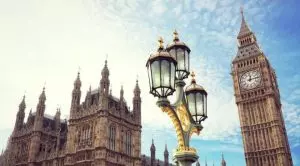 Despite the tougher restrictions on gambling, introduced earlier this year by the government and by the United Kingdom Gambling Commission (UKGC), the number of people seeking treatment for gambling addiction has increased in the past year. New statistics from the National Health Service revealed that there were 379 hospital admissions related to gambling problems in 2018-19.
Despite the tougher restrictions on gambling, introduced earlier this year by the government and by the United Kingdom Gambling Commission (UKGC), the number of people seeking treatment for gambling addiction has increased in the past year. New statistics from the National Health Service revealed that there were 379 hospital admissions related to gambling problems in 2018-19.
These figures suggest that, on average, the number of gambling-related hospital admissions in the past year was more than one a day. The unexpected increase in admissions of people diagnosed with “pathological” gambling addiction represents a 28% rise compared to the 2015-16 figures. The greatest number of hospital admissions was recorded in the north-west, followed by London.
Around a sixth of all people admitted in hospitals in England, Scotland and Wales were individuals under the age of 25. Although it is unclear how many of them were children, experts believe that problem behaviours related to gambling are especially alarming in adolescents. Earlier this year, the Gambling Commission released statistics, according to which the number of children who were at risk of gambling addiction quadrupled in the past two years.
According to the Commission, around 55,000 children across the United Kingdom can be classified as problem gamblers. Approximately 450,000 underage minors take part in some type of gambling activity on a regular basis. Last week, the Royal Society for Public Health urged the Government to classify the so-called loot boxes in video games as gambling.
In a report, the group cited concerning statistics regarding skin betting and loot boxes, which are becoming increasingly popular in video games. Around 40 per cent of young gamers admitted they had purchased loot boxes, while 14 per cent of those who had participated in some sort of gambling activity paid using their own credit card, their parent’s card, or with money borrowed from a friend or family member.
Problem Gambling on the Rise in the UK
 The NHS has several centres that focus on treating patients with compulsive gambling issues. Earlier this year, it opened the first gambling treatment clinic outside London in Leeds. The efforts by the government, the UKGC, and the health services to curb the gambling addiction rates in the country are yet to take effect. Gambling-related harm should be considered a public health issue, says the Gambling Commission.
The NHS has several centres that focus on treating patients with compulsive gambling issues. Earlier this year, it opened the first gambling treatment clinic outside London in Leeds. The efforts by the government, the UKGC, and the health services to curb the gambling addiction rates in the country are yet to take effect. Gambling-related harm should be considered a public health issue, says the Gambling Commission.
Gambling disorder was first recognised as a medical condition by the World Health Organization in 2000. It is associated with compulsive behaviours, substance misuse, and increased risk of self-harm and suicide. It often occurs in conjunction with or results in serious mental health issues, including anxiety, depression, and psychosis.
According to the UKGC, there are around 340,000 problem gamblers in the country, which is approximately 0.7 per cent of the population. Official figures say that more than half of all people aged 16 or older have gambled at least on one occasion in 2018.
- Author


